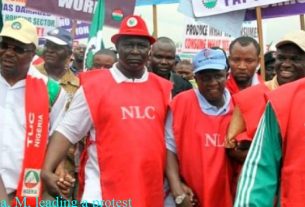Nigeria’s ambition to transition its electricity sector into a fully competitive bilateral market is faltering as systemic weaknesses, including an unreliable national grid, a staggering N4 trillion market debt and unclear regulatory pathways, stall the market.
About eleven years after the privatisation of the power sector, the Nigerian Electricity Regulatory Commission (NERC), in its most assertive step last year, issued a market order mandating that electricity distribution companies (DisCos) assume full responsibility for tariff setting and power procurement within 60 days.
The move, which would have removed the Nigerian Bulk Electricity Trading Plc (NBET), which had acted as the federal government’s intermediary buyer and risk absorber in power transactions, remained in limbo over the crisis with the grid system and the liquidity crisis in the sector.
A source at NERC, yesterday, said that the move stalled primarily because of the repeated grid collapses the country has experienced, as the commission remains sceptical of the projected improvement in the grid.
The source, pleading anonymity, said the commission realised that development would complicate the electricity market.Some analysts have also warned that such a shift, though theoretically sound, is unfolding in an unprepared and structurally fragile market.
Multiple grid collapses in recent months have amplified concerns about the integrity of Nigeria’s transmission backbone, historically managed by the Transmission Company of Nigeria (TCN) and now being phased into the newly constituted Nigerian Independent System Operator (NISO). The repeated system failures undermine the foundational requirement for a reliable and responsive network to support bilateral trading.
A power sector analyst, Lanre Elatuyi, said that the reliability of the transmission infrastructure remains the biggest bottleneck for the sector.
“There have been at least two regulatory orders attempting to move the market into a medium-term structure, yet the sector has not progressed significantly. DisCos lack commercial viability, GenCos are owed trillions, and there’s no coherent framework guiding this transition,” he said.
The creation of NISO is central to the envisioned wholesale electricity market. As the market administrator, NISO is tasked with designing and regulating a competitive trading environment, including the potential launch of a Day-Ahead Market for energy and ancillary services. Yet even this appears riddled with uncertainty.
The Electricity Act 2023, which decentralises electricity regulation by empowering state governments to establish their regulatory commissions and manage sub-national electricity markets, further complicates the transition.
While intended to promote innovation and decentralised energy governance, it raises critical questions about market coherence.
“How will NISO integrate newly licensed, state-regulated load-serving entities into a centralised wholesale market? Do these entities, often carved out of DisCos that are themselves struggling, meet the technical and financial thresholds for participation in an NISO-administered market? Elatuyi asked.
He noted that states may opt to operate isolated or “islanded” markets, bypassing the federal wholesale trading platform altogether — a scenario that risks creating a fragmented electricity sector with limited interoperability.
Elatuyi noted that there is no clear plan on what to do with legacy Power Purchase Agreements, adding: “Will NBET remain as a special trader, or will these contracts be transferred to DisCos?
At the core of the issue is an unsustainable market debt profile where GenCos are currently owed over N4 trillion, with DisCos unable to meet their financial obligations due to high aggregate technical, commercial, and collection (ATC&C) losses.
Some operators record losses as high as 45 per cent, meaning nearly half of all energy dispatched into the system is lost due to theft, poor metering, or infrastructure failure.
Without addressing this gaping financial hole, stakeholders said the bilateral trading would collapse under its weight.
While the vision of a decentralised, competitive electricity market remains compelling, the path to its realisation appears marred by institutional inertia and lack of capacity. NISO, though expected to introduce a market design that includes financial settlements and real-time energy procurement, is still defining its role.
A board member of the agency said that the agency’s performance in resolving the crisis in the sector still relies largely on the TCN, which is the infrastructure builder.
The Guardian





